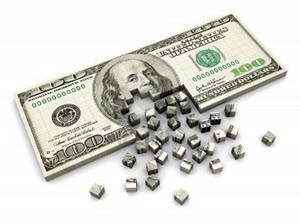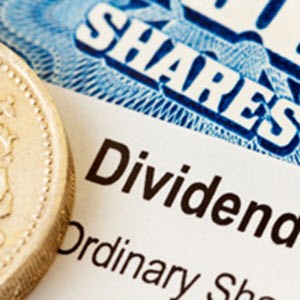 A stock dividend is a special type of payment made by the stock company to its shareholders. It is usually a distribution of profits.
A stock dividend is a special type of payment made by the stock company to its shareholders. It is usually a distribution of profits.
When a company makes a profit, it can distribute it to its shareholders in the form of a dividend. It is very unusual for a company to distribute its entire profit, since it is considered better to retain a least a part of the profit within the company.
When dividends are distributed, each share is entitled to the same amount.
Example: Michael has 150 shares in Company A and Eva has 200 shares in Company A. Company A is distributing cash dividends at a rate of $20 per share. Michael gets 150 x $20 = $3,000. Eva gets 200 x $20 = $4,000.
Cash is not the only way to pay dividends. Dividends can be issued as shares of stock, other property, etc.
Dividend payments must be approved by the shareholders.
Investing in companies that issue dividends
In many jurisdictions, income from dividends are not taxed as hard as other forms of income from capital. In such jurisdictions, dividend-paying stocks are popular among investors seeking tax-advantaged cash flow. The favorable tax treatment can be extra important for investors in high marginal tax brackets.
Examples of sectors where you can usually find companies that issue large dividends are oil and gas, bank and financial, basic materials, utilities, healthcare and pharmaceuticals, and real estate. Start-up companies and high-growth companies will normally not offer dividends, since they reinvest their profits instead in order to grow and expand as quickly as possible. It is instead with the big and well-established companies that we tend to find high-yielding dividend stocks.
Fixed schedule vs. special dividends
- Public companies normally have a fixed schedule for paying dividends.
- A special dividend is a payment of dividends that is separate from the fixed schedule. A special dividend payment can for instance take place when a company has achieved exceptionally strong earnings that are not believed to mark a sustained increase in earnings. Another situation when a company can elect to pay out special dividends is when it has made changes to its financial structure, e.g. debt ratio.
Dividend payout policies
 There are many different dividend payout policies. Here are three of the most commonly utilized ones:
There are many different dividend payout policies. Here are three of the most commonly utilized ones:
- Constant payout
The company will pay out a specific percentage of its earnings each year as dividends to its shareholders. With a constant payout ratio, how much the shareholders get in dividends per share will vary depending on the exact size of company earnings. - Stable dividend
The aim of a stable dividend policy is to maintain a steady payout of dividends even when company earnings vary. - Residual dividend
With a residual dividend policy, the firm will retain a part of the earnings to finance the equity portion of its capital budget. Residual earnings are then used to pay out dividends to the shareholders.
Dividend reinvestment program
A dividend reinvestment program (DRIP) is an equity investment option offered by the company that issues dividends to its shareholders. Instead of receiving a cash dividend, the shareholder’s dividend will be directly reinvested in the underlying equity.
If you own shares in a company that doesn’t have any DRIP, please be advised that there are brokerage firms that offer reinvestment of stock dividends at no cost. This is called synthetic DRIP.
